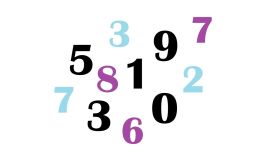Alex Serodio struggles to find enough superlatives to describe Brazil's cumbersome tax system. "I think rocket science might be easier," quips the online beauty products retailer in São Paulo.
That could change this year, as lawmakers consider various proposals to simplify one of the world's most complicated and time-consuming tax regimes.
President Jair Bolsonaro, who came to power in January 2019 on a promise to slash red-tape for businesses, has made tax reform a priority this year. It is an ambitious goal that previous governments have failed to achieve.
While tax cuts are not an option for the cash-strapped country, modernising the system is seen as key to spurring economic growth, boosting foreign investment and enabling the private sector to flourish.
"It's really, really, really, really, really complex," says Serodio, whose company, Beauty on the Web, employs a team of accountants and lawyers to navigate the labyrinthine tax rules that are constantly changing.
"This is why you don't have many [foreign] retailers in Brazil... it's too complicated."
An average of 31 tax rules are introduced or amended every day, according to the Brazilian Institute of Planning and Taxation, making compliance almost impossible for many companies.
"It's so complex that we spend a lot of our decision-making time on this and not how to add more value to consumers," Serodio adds.
He is not alone. A medium-sized company in Brazil spends more than 1,500 hours a year preparing and paying taxes, according to the World Bank's latest Doing Business report.
It ranked Brazil among the 10 worst countries for paying taxes — only slightly better than the Congo and Venezuela. That compares with 175 hours in the United States and 114 hours in Britain.
"I often joke that even when we sleep, we're paying taxes," Gabriel Kanner of Brasil 200, a business lobby group, told local media recently.
Brazil has 63 different taxes, including multiple levies on goods and services.
These consumption taxes, which unfairly hurt the poor and are a nightmare for businesses to calculate, are in the cross-hairs of lawmakers. Their rates can vary wildly across Brazil's federal district, 26 states and 5,570 municipalities, depending on the product or service and jurisdiction.
"It's totally irrational," a vexed Flavio Rocha, chief executive of retail giant Riachuelo, tells AFP.
"A big industry in Brazil is the tax fight industry."
In the northeastern state of Maranhão, for example, 12 different tax rates apply to milk depending on its fat content and the animal it came from, according to São Paulo-based Endeavor, which assists startups.
"It is a system that is old, onerous, very expensive and complex for companies," says Monica Bendia, a tax specialist at UHY Bendoraytes, an auditing firm in Rio de Janeiro.
Winners and losers
Several proposals for streamlining the system for taxing goods and services are on the table.
Two plans in Congress propose combining several municipal, state and federal taxes into a value-added levy. They also push for a selective tax on goods such as alcohol and cigarettes.
The chance of getting one of the proposals through the lower and upper houses seems higher than in the past, experts say. But it will not be easy.
Some taxes are included in the Constitution and changes to those have to be approved by 60 percent of lawmakers in both houses.
"We have a federal district, 26 states and more than 5,500 municipalities and each of them has a tax authority," says Linneu de Albuquerque Mello, a tax lawyer in Rio de Janeiro.
"When you talk about overhauling the tax system because it's not efficient, if you change anything, someone will lose and someone will gain."
The government's success in winning congressional support for its pension overhaul last year–something previous administrations had also failed to do–has raised hopes for the possibility of tax reform.
"We have a very special moment to do this, so it would be terrible if we lost this opportunity because we don't know when we will have another one," says Marina Thiago of Endeavor.
Serodio does not favour a particular proposal. He just wants lawmakers to make the system "very simple."
"Do that and we are going to be able to get more traction and pay more than we pay today," he says.
by Allison Jackson, AFP



















Comments